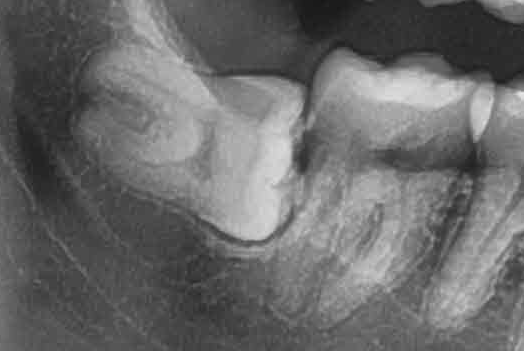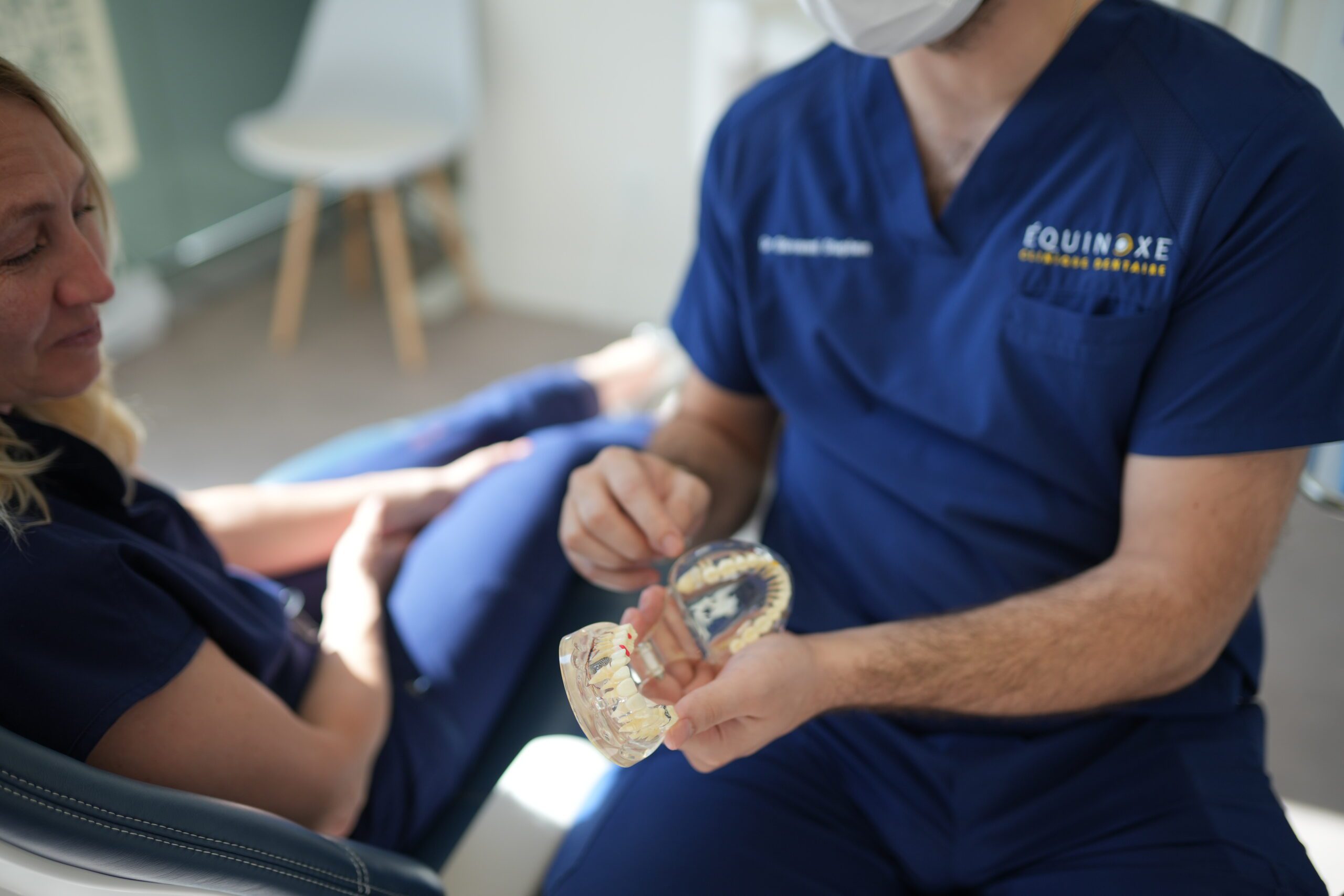Why do wisdom teeth need to be removed?

Wisdom teeth, or third molars, can cause several dental issues if not removed in time. These teeth, which typically emerge between the ages of 17 and 25, are often in a mouth that is already crowded, leading to a lack of space for proper development. As a result, they may grow incorrectly, causing pain, infections, or even damage to adjacent teeth.
One of the main reasons for extracting wisdom teeth is the risk of pericoronitis, an inflammation of the gum around the tooth when it is partially erupted or impacted. This condition is often accompanied by pain, swelling, and infections. Additionally, these teeth can be difficult to clean due to their location at the back of the mouth, increasing the likelihood of cavities.
Furthermore, when there isn’t enough space, wisdom teeth may grow at an angle or remain impacted beneath the gum, causing pain and discomfort. These misaligned teeth can also affect the alignment of other teeth, leading to shifts or orthodontic issues.
To prevent future complications, our dentists recommend removing wisdom teeth before they cause significant problems. Early extraction reduces the risks of pain, infections, or damage to nearby teeth. However, as each case is unique, a consultation with a professional is essential to determine if extraction is necessary.

Issues related to impacted wisdom teeth
Infections
The most common clinical problem is a localized gum infection called pericoronitis. Due to the lack of space for the wisdom tooth to emerge properly, the gum surrounding the tooth becomes irritated and infected, causing recurrent pain, swelling, and difficulty chewing or swallowing.
Damage to adjacent teeth
When there is not enough space, wisdom teeth can put pressure on adjacent teeth. If it is difficult to clean around the wisdom tooth, the second molar just in front may be affected, leading to gum disease, bone loss, and even cavities.
Cyst formation
Non-infectious problems can also develop related to an impacted wisdom tooth. Cysts, which are fluid-filled formations, can form inside the jawbone. These cysts grow slowly, causing progressive destruction of the jawbone and, in some cases, damage to neighboring teeth.
Risk of crowding
Wisdom teeth can cause the overlap of other teeth. When the jaw doesn’t have enough space for the wisdom teeth to emerge properly, they can put pressure on the neighboring teeth. This pressure can lead to tooth movement, causing overlap, especially after orthodontic treatment.
Wisdom tooth extraction is performed under local anesthesia, which ensures that you feel no pain during the procedure. After the extraction, it is normal to experience some mild discomfort or moderate pain, but this can be easily managed with pain medication prescribed by our surgeons.
By following your dental professional’s advice and taking the proper care measures, you can minimize discomfort and speed up your recovery.
Rest assured that our team is here to support you every step of the way and ensure your comfort throughout the process.
Recovery time after wisdom tooth extraction varies from person to person, but most patients feel better after a few days. Immediately after the procedure, you may experience mild swelling and discomfort, which can last for 2 to 3 days. By following post-operative care instructions, such as applying cold compresses and taking prescribed medications, you can reduce these symptoms.
Complete healing of the gums may take about 1 to 2 weeks. It is important to follow your dentist’s recommendations to avoid complications and promote a quick and painless recovery. Most patients return to their normal activities within the week following the extraction, but it is recommended to avoid intense physical activity during the first few days.
Our team will be available to answer all your questions and support you throughout the recovery process.
Wisdom tooth extraction is often recommended between the ages of 17 and 25, when the roots of the teeth are not yet fully formed. At this age, the procedure is generally simpler, healing is faster, and the risk of complications is reduced. However, if your wisdom teeth are not causing immediate issues, they may be monitored regularly by your dentist.
In some cases, wisdom teeth may need to be removed later in life due to pain, infections, or if they cause dental crowding or alignment issues. Our dentists will be able to advise you on the best time to proceed with extraction based on the condition of your teeth and your oral health.
It is best to discuss your situation with one of our professionals to determine the ideal timing and prevent any potential future complications.
Preventive wisdom tooth extraction offers several important benefits. By removing these teeth before they cause problems, you reduce the risk of future complications such as infections, pain, cysts, or damage to adjacent teeth. It also helps avoid dental crowding issues, including tooth displacement, which could require additional orthodontic treatment.
By opting for preventive extraction before symptoms arise, you benefit from a quicker and easier recovery, as the roots of the wisdom teeth are less developed, making the procedure less complex. Additionally, it helps avoid the pain and complications associated with impacted or misaligned wisdom teeth.
Preventive extraction helps maintain long-term oral health by preserving the integrity of your teeth, gums, and jawbone.
No, it is not always necessary to remove all wisdom teeth. If your wisdom teeth are properly positioned, fully erupted, and do not cause any issues, it is perfectly fine to leave them in place and monitor them regularly. Some people may not have wisdom teeth at all, or they may never cause any problems.
However, in many cases, extraction is recommended to prevent potential future complications such as infections, pain, alignment issues, or damage to adjacent teeth. Our dentists will assess the condition of your wisdom teeth using X-rays and determine whether extraction is necessary.
Not removing wisdom teeth when they cause problems can lead to several risks for your oral health. If these teeth are partially erupted or impacted, they can cause infections, recurrent pain, abscesses, and gum inflammation (pericoronitis). Lack of space in the mouth can also lead to misalignment of the teeth, which may require additional orthodontic treatment.
Moreover, misaligned or impacted wisdom teeth can damage adjacent teeth, cause cavities, or lead to cysts, which can destroy jawbone and affect the health of other teeth. These problems can worsen over time and require more complex and costly interventions.
By removing wisdom teeth at an early stage, you can prevent these complications and preserve the health of your teeth, gums, and jaw in the long term.
Make an appointment today!
We have an excellent team to provide you with the best care and take care of your loved ones. If you would like to learn more about us and give us the chance to offer you our best service, make an appointment today and become a member of our community.

EXCELLENTTrustindex vérifie que la source originale de l'avis est Google. J’ai vu Dr Ilyas Dakkak pour mon examen. Super professionnel! Il s’est assuré de prendre le temps de tout bien expliquer et répondre à toutes mes questions. Très bonne équipe!Trustindex vérifie que la source originale de l'avis est Google. Je recommande vivement cette clinique à toute personne cherchant un dentiste compétent et bienveillant (Dr Giovanni Stephan) . La clinique est tres propre et l’équipe est tres professionnelle. Merci encore pour votre excellent travail 🙂Trustindex vérifie que la source originale de l'avis est Google. Superbe place! Dentiste et personnels compétents et agréablesTrustindex vérifie que la source originale de l'avis est Google. Exceptional care and professionalism!Trustindex vérifie que la source originale de l'avis est Google. Super endroit avec des gens courtois et professionnelTrustindex vérifie que la source originale de l'avis est Google. Vraiment une super expérience. Le dentiste est très attentif et l’équipe est super accueillante et on se sent vite à l’aise.Trustindex vérifie que la source originale de l'avis est Google. Tous les membres du personnel ont été vraiment souriants et rassurants. Merci à toute l’équipe. Merci à Élodie pour sa gentillesseTrustindex vérifie que la source originale de l'avis est Google. Très belle expérience!! Une équipe très accueillante et attentionnée!!Trustindex vérifie que la source originale de l'avis est Google. Très pro! Bonne expérienceCertifié par: TrustindexLe badge vérifié de Trustindex est le symbole universel de confiance. Seules les meilleures entreprises peuvent obtenir le badge vérifié, avec une note supérieure à 4.5, basée sur les avis des clients au cours des derniers 12 mois. En savoir plus
